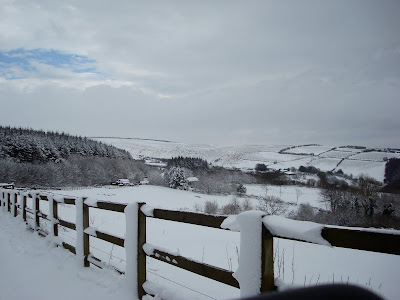

The picture at the top is a thermographic image of a healthy barefooted horse. The hooves are a similar temperature to the rest of the distal limb, with warmer areas where blood flow is particularly close to the surface.
Looking at the temperature chart, the hooves are about 24-25 degrees, and the floor is about 17 degrees, and you can see the point where the hooves are in contact with the ground and "bleeding" warmth onto that surface.
To the touch, hooves like this feel warm but not hot - just pleasantly alive :-)
By contrast, the temperature of shod hooves (particularly in horses with caudal hoof pain) is usually much lower and a shod hoof will feel cold - closer to the temperature of the surface the horse is standing on - so in the example above, if the horse were shod you'd expect his hooves to be 7 or 8 degrees colder - a big difference.
There is no doubt that when you take shoes off, hooves warm up very quickly - with a laser thermometer I've recorded a 10 degree temperature rise in less than an hour.
Some people view this as proof that the circulation increases, and that may well be partly true, but it happens even with horses whose feet are unhealthy and it happens while they are standing still, so I don't think thats the whole story.
The best explanation, in my view, came from a farrier, who gave me the little blue device in the second photo. Its purpose is to stop computers overheating - its made of aluminium and is extremely efficient at dissipating heat - so much so that its uncomfortable to hold because your hand quickly gets very chilly.
The farrier had already made the connection when he gave this to me - the shape of it, and the raised "pins" are very reminiscent of a horseshoe - there is probably no better way of rapidly and continually drawing warmth out of a hoof than nailing a shoe on.


























